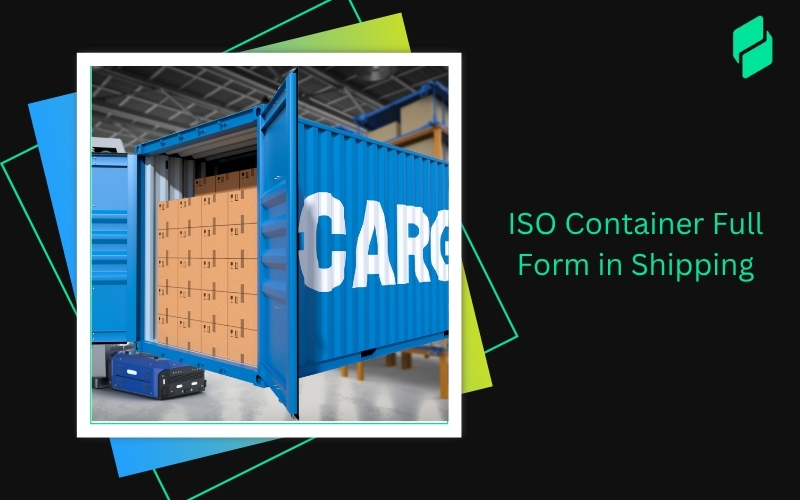Transporting goods from sellers to buyers is a cakewalk — says who?
The only entity that ever crossed borders with cargo atop without worrying about customs clearance and transportation charges are the fire-spitting dragons of Daenerys Targaryen.
Since no retailer in this real world lives in the mythical kingdom of Westeros, each one involved in exporting goods across borders must pay transportation charges.
Every retailer business that has ever tried to cross borders and enter an international market would agree that out of all the stages of supply chain management, transporting goods is the one factor that decides whether or not a business will thrive and survive the tough terrains of international trade.
In general, transportation charges refer to the costs associated with moving the goods from the seller to the buyer. In fact, transportation charges:
- Can significantly affect the cost of the entire supply chain, though the exact impact varies based on numerous factors such as the type of goods, distance, and transportation method.
- Can cover a range of activities including but not limited to packing, handling, shipping, insurance, and every other expense incurred during the transportation process
On top of all this, transportation charges also vary based on factors such as:
- The terms of the sale
- The shipping method
- And the specific agreements between the buyer and seller
Tricky affair to wrap your head around such complexities, isn’t it? Since we understand the challenges retailers face during transportation, we have exclusively broken things down for you to get to the pulse of transportation charges in accordance with your business in the subsequent sections. Have a look!
Optimize your business: use unlimited savings with Pazago fulfilled now!
Get Started ->Transportation Charges in the Context of Sales Tax
The very first thing that Indian exporters need to know is that the US does not have a federal sales tax law. Which means that every state in America has its own taxing system. And exporters need to collect sales tax whether or not their business is physically present in the country (there are certain exceptions).
That said, some key points to note concerning transportation charges regarding sales tax are listed below.
- Separately stated charges: In many jurisdictions, transportation charges can be exempt from sales tax if they are separately stated on the invoice or billing statement and if the charges are optional for the buyer. We will cover separately stated charges in more detail in later sections
- Mandatory charges: If the transportation charges are not separately stated from the selling price of the goods, they are often considered part of the taxable sale amount
- Timing and transfer of ownership: In some cases, if the transfer of ownership occurs before shipping, the transportation charges might be considered separate; hence, potentially non-taxable. Conversely, if the ownership transfers upon delivery, the shipping charges might be regarded as part of the taxable sales price
- Direct vs. third-party shipping: Direct shipping costs included in the sale price are generally taxable, whereas reimbursed expenses for third-party shipping might not be
Confused? We've got tips to help you export goods without mistakes.
We created this guide exclusively for you — we will walk you through all the specifics of costs regarding transportation — the different types of transportation charges, the fuss about separately stated charges, factors that influence the taxability of goods, and much, much more!
Start exploring transportation charges without worries.
An Overview of How Transportation Charges Apply to Tangible Goods Transaction
As stated, transportation charges can be aptly defined as the costs associated with the delivery or shipping of goods from the seller to the buyer.
Here’s a table that pinpoints all the critical aspects of transportation charges in tangible goods transactions.
What are the Different Types of Transportation Charges You Must Know Of?

In order to simplify the mumbo jumbo around the types of transportation charges, we have broken them down based on the shipment’s stage. The three categories include:
- Charges before the main transit
- Charges during the transit
- Charges after the goods reach their destination country/ state
Below are some informative tables that’ll familiarize you with the major types of transportation categories during all these three stages. Have a look!
Transportation Charges Before the Main Transit Begins
Transportation Charges During the Main Transit
Transportation Charges After the Goods Reach Their Destination
Alternative Ways to Classify Transportation Charges
Apart from the classifications above, there are a few alternative ways to classify the transportation charges, which we have discussed below. Have a look!
Transportation by Carrier
The two primary considerations regarding transportation by carrier are listed below.
#1. Tax Applicability and Exemption for Property Delivered by Mail, Independent Contractor, or Common Carrier
Tax depends on the goods, where they're from, where they're going, and the seller-carrier relationship.
Here are the details of all the types –
- Mail deliveries: Includes items shipped through postal services, and it may be subject to sales tax based on the destination principle, where taxes are applied based on the delivery location
- Independent contractors: Deliveries made by independent contractors who provide delivery services for a fee can also be subject to taxes
- Common carriers: The use of common carriers for shipping goods can introduce tax obligations or exemptions depending on whether the shipping charges are separable from the sale of goods and if the carrier is deemed to be acting independently of the seller
#2. Definition and Tax Implications of 'Postage and Handling' or 'Shipping and Handling' Charges
The terms "postage and handling" (P&H) and "shipping and handling" (S&H) charges are commonly used in the context of transporting goods.
These charges encompass the costs associated with shipping the goods (postage or shipping fees) and the additional service fees for handling the items.
- Postage and handling: This typically refers to the combined costs of postage fees (the cost of mailing through a postal service) and handling fees (the cost of packaging and managing the shipment).
- Shipping and handling: Similar to P&H, S&H charges include the cost of shipping via any carrier (not limited to postal services) and handling fees. The tax implications of S&H charges can vary
Transportation by Retailer's Facilities
Transportation by a retailer's facilities refers to the process where a retail business uses its own resources, such as vehicles and personnel, to deliver products to customers instead of relying on third-party delivery services.
This method of transportation is often adopted by retailers who:
- Seek greater control over the delivery experience
- Wish to offer enhanced customer service
- Aim to reduce shipping costs.
Example of Delivered Price and Taxation Rule
Let's assume that the business type here is Online Retail Purchase!
You ordered a laptop online for $1,200 with a shipping fee of $50. So the delivered price is $1,250. Here's what the taxation rule says in this case:
- If the sale is subject to sales tax and the tax rate is 8%, the total cost could be $1,350, including $100 in sales tax, assuming the tax applies to the total delivered price
- If the shipping is separately stated, sales tax might only apply to the $1,200 price of the laptop, resulting in a total of $1,296 (including $96 in sales tax).
Transportation of Landfill Material
Starting January 1, 1989, in the USA, specifically in California, transporting landfill materials such as sand, dirt, or gravel from an excavation site to a specified landfill site became tax-exempt under certain conditions. Those conditions include —
- The charges must be clearly separated and reasonable
- The payment is solely for transportation to a specified site without extra cost for the material
What are Separately Stated Charges?
You must understand that separately stated charges in transportation charges refer to specific costs that are itemized or listed separately from the basic shipping fee on an invoice or bill of lading.
The examples of separately stated charges in transportation include the following:
- Fuel surcharges
- Accessorial charges: Fees for extra services beyond standard pickup and delivery, such as inside delivery, liftgate service, residential delivery, storage, or demurrage
- Insurance fees
- Hazardous materials surcharge
- Oversize or overweight fees
- Customs brokerage fees: Charges for facilitating the import and export of goods through customs
What are the General Principles of Transportation Charges?
You must have observed that most of the confusion about service tax on transportation charges stems from the fact that some goods are separately stated and some are not.
In order to nip this confusion in the bud, we’ve created this helpful section. Let’s walk you through different aspects of transportation charges for stated goods.
Tax Exemption Criteria For Separately Stated Transportation Or Delivery Charges
Tax exemption on separately stated transportation charges can vary significantly based on jurisdictional tax laws and regulations.
However, some common conditions and principles generally apply when determining the tax exemption status of these charges. Here's an overview:
- Optional vs mandatory charges: Transportation charges that are optional for the buyer, meaning the buyer has the option to arrange their own shipping or pick up the goods themselves, are more likely to be exempt from sales tax when separately stated on the invoice
- Clear separation from sale of goods: The transportation charges must be distinctly itemized and separate from the cost of the goods on the invoice
- Direct relationship to shipping cost: The charges should directly relate to the cost of shipping the goods and should not include any markup. This means the transportation charge should reflect the actual cost of transporting the goods to the buyer
- Timing of the charge: Transportation charges are more likely to be tax-exempt if they are incurred after the sale is complete
- Jurisdictional regulations: Some jurisdictions have specific regulatory exceptions for transportation charges, making them nontaxable under certain conditions, such as for specific types of goods (e.g., medical supplies) or services (e.g., waste removal)
Please note: Interstate and International shipments that include deliveries across state or international borders can have different tax implications. Some jurisdictions do not tax sales where the goods are shipped to out-of-state buyers.
Discussion of Transportation Charge Taxability in Massachusetts
In Massachusetts, the application of sales tax to transportation charges is governed by specific guidelines set forth by the Massachusetts Department of Revenue. These rules are like what we discussed in 'General Principles of Transportation Charges.'
However, there are a few additional considerations that you must consider. We have listed them below.
- Bundled charges: If delivery or shipping charges are bundled with other taxable services (e.g., installation or assembly services), the entire bundled charge may be subject to sales tax
- Returns and exchanges: If a taxable item is returned and the seller refunds the delivery charge, the seller can also claim a deduction for the sales tax previously paid on the refunded delivery charge
What is the Impact of Including or Excluding Transportation Charges On Sales Prices?
Including transportation charges in the sales price might simplify the purchasing process for buyers but could potentially increase the taxable amount, while excluding them could offer more transparency and possible tax benefits under certain conditions.
We’ve touched on the critical information for both.
- For Sellers: It's crucial to understand the tax laws related to transportation and delivery charges in the jurisdictions where they operate to ensure compliance and correctly calculate the total cost for customers
- For Buyers: Awareness of how transportation charges are applied and taxed can help in understanding the total purchase cost and in making informed decisions
Given the complexity and variability of tax laws, partnering with Pazago can make all the difference — our expertise in navigating the specific requirements and exemptions applicable in any particular jurisdiction within the states makes us stand out.
Historical Context and Legal Authority in Transportation Charges

To get trade logistics, it's crucial to see how transportation charges evolved.
Historically, government regulation significantly shaped the pricing structures of trucking, rail, and air transport industries within the United States.
Over time, legislative and regulatory changes have progressively moved towards deregulation, profoundly impacting transportation charges and, consequently, the overall efficiency and cost-effectiveness of trade.
Revision History Of Transportation Charge Regulations
Title 49 of the United States Code serves as the legislative backbone for transportation in the United States.
Let’s take you through the evolution of Title 49 from its inception to its current form.
- Setting up the law: The codification of Title 49 into positive law began with the enactment of Public Law 95-473 on October 17, 1978
- The initial amendments: The process continued with significant amendments introduced by Public Law 97-449 in 1983 and Public Law 103-272 in 1994, further enriching the title by covering a wide spectrum of transportation modalities and regulatory concerns.
Impact and Revocation of Prior Directives on Current Transportation Charge Tax Rules
During the transition period between 1978 and 1994, sections not yet converted into positive law were temporarily housed in an appendix to Title 49. This transitional phase underscored the complexity and breadth of transportation law, necessitating a phased approach to its organization.
The most significant change happened in 1995 with the arrival of the ICC Termination Act. It amended Title 49 substantively and signaled a shift towards deregulation. The final turn occurred in 2015 with the FAST Act, which introduced a new subtitle dedicated to Multimodal Freight Transportation. This addition:
- Highlighted the increasing focus on integrated transportation systems
- emphasized efficiency and connectivity across different transportation modes
Conclusion:
Benjamin Franklin once said, “Tell me and I forget, teach me and I may remember, involve me and I learn”, and today, we've tried with all our might to involve you in the ins and outs of transportation charges.
With this plethora of new-found knowledge, it's up to you to give your business the boost it requires.
Whether you're a seasoned business owner expanding your reach or a newcomer setting out on your first venture, it's imperative that you understand the different types of transportation charges, ranging from separately stated charges to cargo insurance charges, customs charges, freight charges, warehousing fees, and delivery charges.
Remember, in the competitive arena of international trade, knowledge is more than power — it's your passport to success.
We at Pazago offer all the help you need with the transportation of your goods, no matter which sector your business belongs to and the country you want to export from! Talk to our experts and learn everything there is to know about the general principles of transportation charges in your country!


.png)








